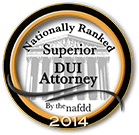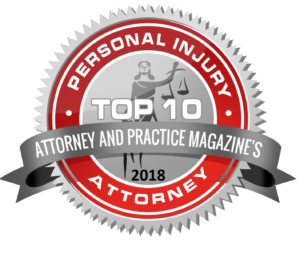Slip and fall accidents are common, and they can happen anywhere, whether you are visiting a store, walking on a sidewalk, or even at a friend’s house. In Virginia, the laws surrounding these types of accidents are important to understand if you have been injured in one. Knowing your rights and responsibilities under Virginia law can help you determine what steps to take if you are hurt in a slip and fall.

Slip and fall accidents happen when a person loses their balance due to a hazardous condition on someone else’s property. These hazards can include wet floors, uneven pavement, or obstacles in walkways. If a property owner has not taken the proper steps to fix or warn people about these dangers, they may be responsible for injuries that occur as a result. At, NovaLegalGroup, P.C, we are here to guide you through the legal process and help you navigate the complexities of your case.
What is a Slip and Fall Case?
A slip and fall case occurs when someone is hurt due to a dangerous condition on another person’s property. In Virginia, property owners have a legal duty to keep their premises safe for visitors. This duty means that they must regularly inspect their property and fix any hazards or provide clear warnings about them. If they fail to do this and someone gets hurt, the injured person may have the right to seek compensation for their injuries.
However, not every fall leads to a legal case. In order for the property owner to be held responsible, there must be proof that they were aware of the dangerous condition and did not take steps to fix it. Additionally, if the injured person was being careless or not paying attention, they might not be able to recover damages for their injuries. Virginia follows the rule of contributory negligence, which means that if the injured person is even slightly at fault, they may not be able to receive compensation.
Types of Property Owners in Virginia Slip and Fall Cases
In Virginia, different types of property owners have different responsibilities when it comes to keeping their premises safe. For example, business owners, landlords, and homeowners all have duties to maintain their properties in a way that protects visitors.
Business owners must make sure that their stores, restaurants, or offices are free from hazards that could cause harm. This might include cleaning up spills, fixing broken steps, or making sure there is proper lighting in parking lots and walkways. If a business owner fails to do these things and a customer is injured, the business may be responsible for the injuries.
Landlords, who rent property to others, also have a duty to keep their rental properties safe. This includes common areas like hallways, stairwells, and sidewalks. If a tenant or visitor is hurt in one of these areas because of a hazard, the landlord may be responsible for the injuries.
Homeowners also have responsibilities to maintain their property for guests. If someone is invited over and is injured by a hazardous condition that the homeowner should have known about, the homeowner could be liable.
Proving Negligence in a Slip and Fall Case
In order to win a slip and fall case in Virginia, the injured person must prove that the property owner was negligent. This means showing that the property owner failed to take reasonable steps to keep their property safe. There are several elements that must be proven in order to establish negligence.
First, the injured person must show that the property owner had a duty to keep the premises safe. This will depend on the relationship between the property owner and the injured person. For example, business owners have a duty to keep their stores safe for customers, while homeowners have a duty to keep their property safe for invited guests.
Next, the injured person must show that the property owner breached this duty by failing to fix or warn about a dangerous condition. This could include things like not cleaning up a spill in a grocery store aisle or not fixing a broken step in an apartment building.
The injured person must also prove that the dangerous condition directly caused their injuries. If a person falls but was not hurt by a hazardous condition, there may not be a case. The injury must be a result of the property owner’s negligence.
Finally, the injured person must show that they were not at fault for their own injuries. As mentioned earlier, Virginia follows the rule of contributory negligence. If the injured person was distracted, ignoring warning signs, or behaving recklessly, they may not be able to recover damages for their injuries.
Common Injuries in Slip and Fall Accidents
Slip and fall accidents can lead to serious injuries, especially for older adults or those with existing health conditions. Common injuries include broken bones, sprained ankles, and head injuries. In severe cases, a slip and fall can result in long-term disability or even death.
Broken bones are one of the most common injuries in slip and fall accidents. This can happen when a person tries to catch themselves as they fall, often leading to fractures in the arms, wrists, or hips. These injuries can be particularly dangerous for elderly people, as broken bones may take longer to heal.
Head injuries are another serious consequence of slip and fall accidents. A person who hits their head on the ground can suffer from concussions, traumatic brain injuries, or skull fractures. These injuries can have long-lasting effects and may require extensive medical treatment.
Sprains and strains are also common in slip and fall accidents. These injuries can occur when a person twists their ankle or knee while falling. While not as serious as broken bones or head injuries, sprains and strains can still be painful and require medical attention.
Choosing a Personal Injury Attorney Personal Injury Case TimelineRelated Videos
What to Do After a Slip and Fall Accident
If you have been injured in a slip and fall accident in Virginia, there are steps you should take to protect your rights and build a strong case. First, seek medical attention as soon as possible. Even if your injuries seem minor at first, it is important to get checked out by a doctor. Some injuries, like concussions or soft tissue damage, may not show symptoms right away but can become serious later on.
It is also important to document the scene of the accident. If possible, take pictures of the hazard that caused your fall, such as a wet floor or broken step. This evidence can be crucial in proving your case later. Additionally, try to get contact information for any witnesses who saw the accident. Their testimony could help support your claim.
You should also report the accident to the property owner or manager as soon as possible. If you are injured in a store, restaurant, or other business, make sure to file an incident report. This creates a record of the accident and can be used as evidence if you decide to pursue legal action.
Finally, it is important to speak with an attorney who understands Virginia slip and fall laws. An experienced attorney can help you navigate the legal process, gather evidence, and negotiate with insurance companies on your behalf.
How Compensation Works in Virginia Slip and Fall Cases
If you are successful in your slip and fall case, you may be entitled to compensation for your injuries. In Virginia, compensation is usually divided into two categories: economic damages and non-economic damages.
Economic damages cover the financial costs associated with your injury, such as medical bills, lost wages, and any future medical care you may need. This can include hospital stays, physical therapy, and prescription medications. If you are unable to work due to your injury, you may also be compensated for the income you have lost as a result.
Non-economic damages, on the other hand, cover the more intangible losses you may suffer as a result of your injury. This can include pain and suffering, emotional distress, and loss of enjoyment of life. These damages can be more difficult to calculate, but they are an important part of making sure you are fully compensated for the impact the injury has had on your life.
Statute of Limitations for Slip and Fall Cases in Virginia
In Virginia, there is a time limit for filing a slip and fall lawsuit, known as the statute of limitations. In most cases, you have two years from the date of the accident to file a claim. If you do not file within this time period, you may lose your right to seek compensation for your injuries.
There are some exceptions to this rule, such as cases involving minors or people with mental disabilities. However, it is important to act quickly if you have been injured in a slip and fall accident to ensure that your case is filed within the required time frame.
If you have been injured in a slip and fall accident in Virginia, it is important to seek legal help as soon as possible. The attorneys at NovaLegalGroup, P.C. have the knowledge and experience to guide you through the legal process and fight for the compensation you deserve. Call today to schedule a consultation and learn more about your legal options.










